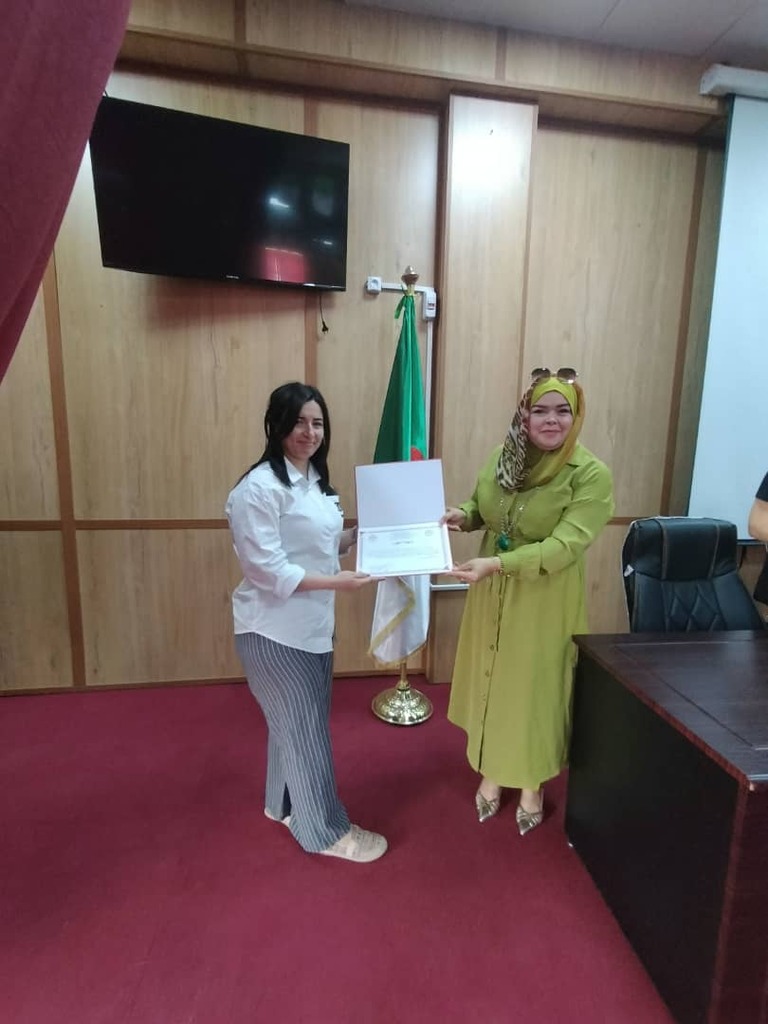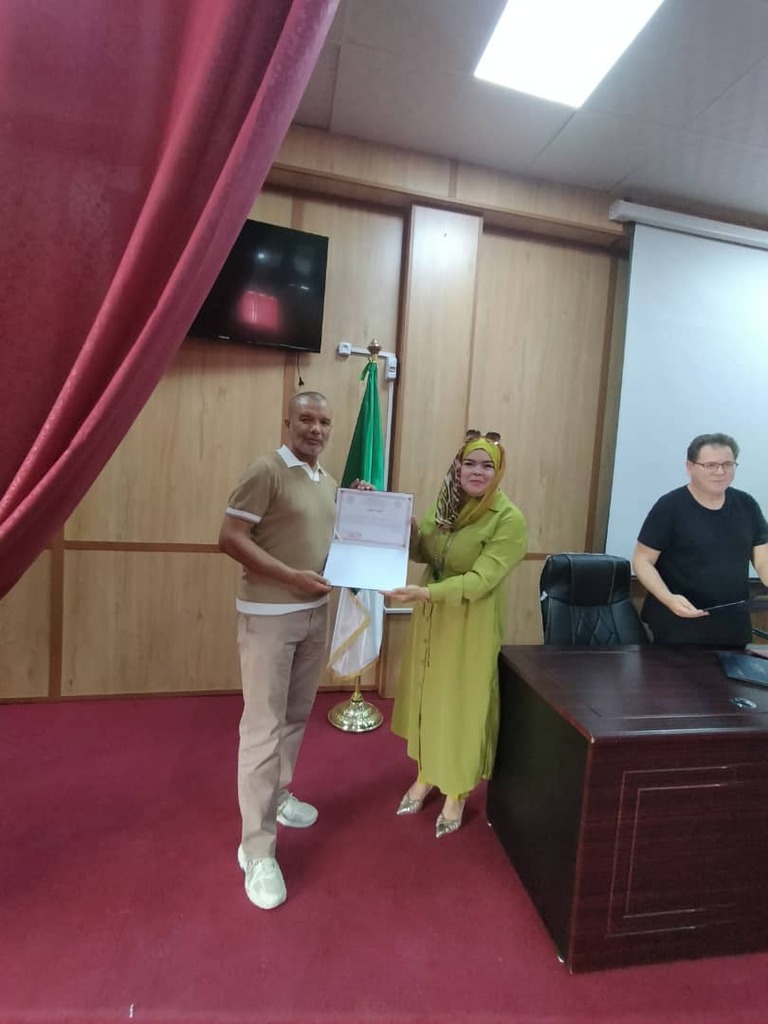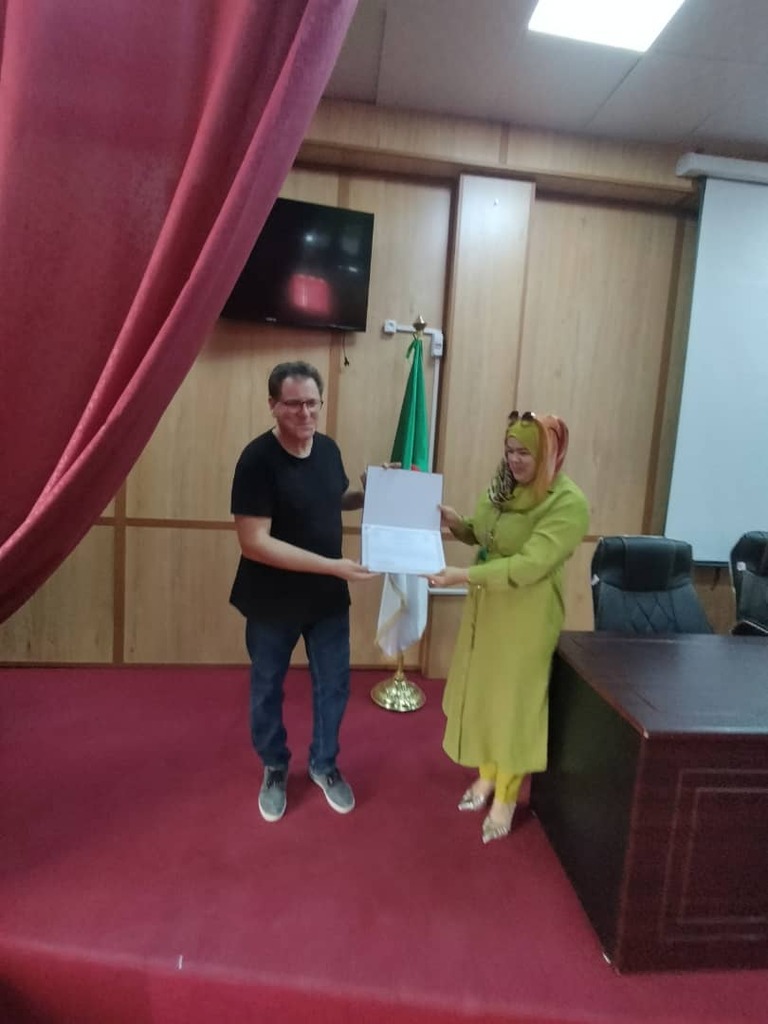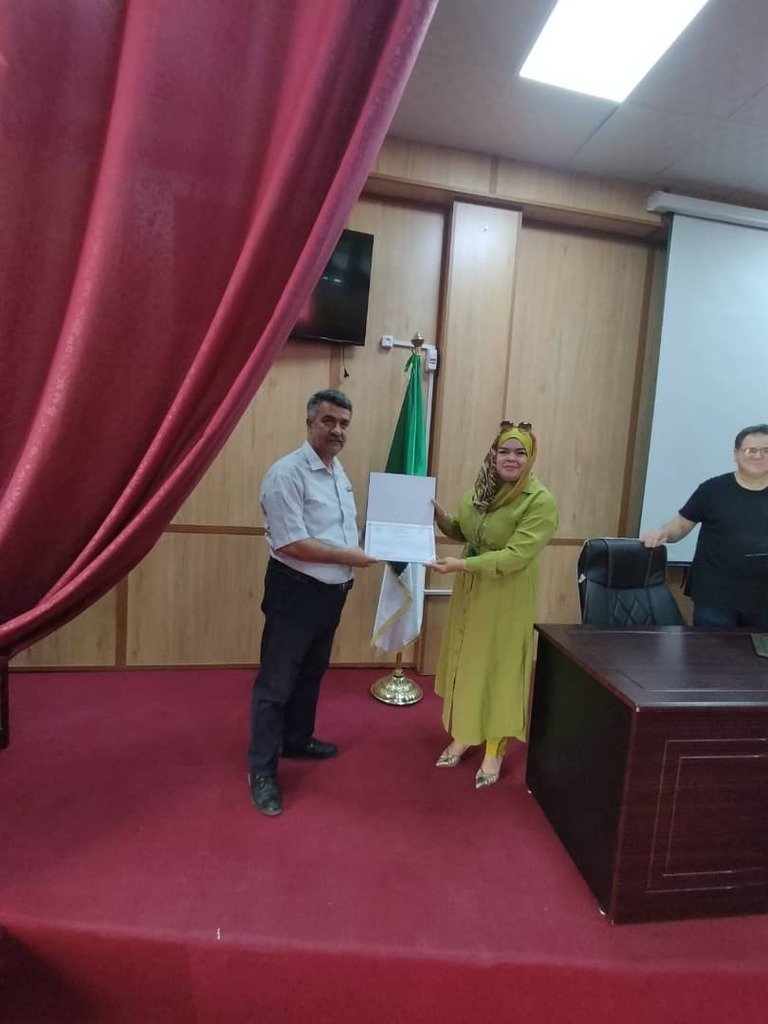Completion of the First Semester of Doctoral Training
“End of the First Semester of Doctoral Training – Educational Material: A Qualitative Approach to Training and Collective Intelligence”
In a scientific and warm atmosphere, the closing ceremony of the first semester of training within the supplementary program for the benefit of the doctoral students of the 2024-2025 batch was organized, specifically for the “Educational Material” course. This event was attended by the supervising professors and the doctoral students, who come from various disciplines, representing a rich scientific and intellectual diversity, including:
Artificial Intelligence, Mathematics, Applied Linguistics, Law, English Language Teaching, Management Sciences, Contemporary History, and Mechatronic Engineering. This event served as an opportunity to exchange experiences and appreciate the collective efforts made.
- On this occasion, we extend our sincere thanks and gratitude to the University President, the Vice President in charge of higher education and postgraduate training, and the Dean of the Faculty of Arts and Languages, for their continuous support of this training path, which is part of the strategic directions of the Ministry of Higher Education and Scientific Research.
- The course coordinator, Professor Kamel Ould Ferrookh, also praised the commitment of the supervising professors who actively participated in the integrated qualitative approach, which was built around four main themes, each aiming to achieve precise pedagogical objectives:
1. Analyzing the Expectations and Needs of Doctoral Students
– Goal: To prepare training content that aligns with the concerns and specificities of the students’ research fields.
A questionnaire was distributed at the beginning of the semester to identify priorities and guide the content creation in a scientific and objective manner.
2. Pedagogical Coordination Among Supervising Professors
– Goal: To ensure the integration of topics and achieve coherence between the various training components.
Coordination meetings were held to fine-tune the content and connect the training with interdisciplinary issues and knowledge integration.
3. Pedagogical Engineering Based on Developing Research Competencies
– Goal: To enable students to apply educational concepts to their research projects (thesis).
Each theme was linked to practical research skills, such as problem definition, determining the theoretical stance, and applying theory to real-world research.
4. Launch of a Collaborative Digital Document (Google Sheets)
– Goal: To enhance collective intelligence and build a collaborative knowledge base between students and professors.
A collective document on Google Sheets was launched, allowing everyone to engage interactively and systematically with the studied content, promoting interdisciplinary collaboration and fostering collective thinking.
5. Organizing a Satisfaction Survey for Doctoral Students
– Goal: To measure the effectiveness and quality of the training and assess whether it meets the students’ expectations, with a view to improving the program in the future.
This approach allowed placing the student at the center of the training process, within the logic of empowerment, knowledge exchange, and addressing the complex challenges of contemporary research that require interdisciplinary and transdisciplinary perspectives.
Thank you to everyone who contributed to the success of this pioneering experience.
With sincere appreciation,
Course Coordinator, Kamel Ould Ferrookh








 عربي
عربي Français
Français International Students
International Students